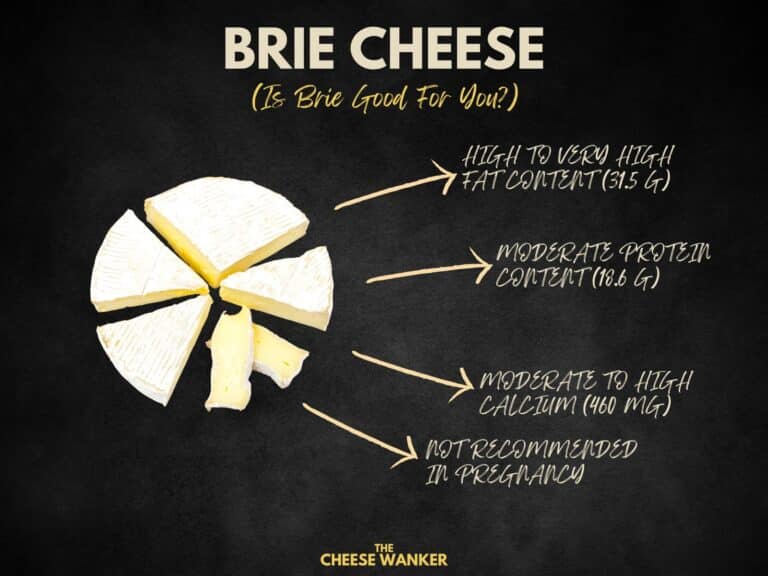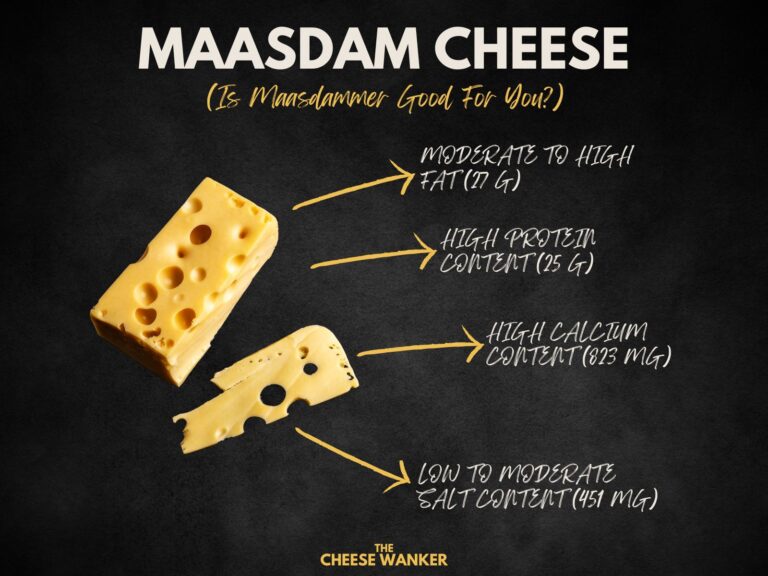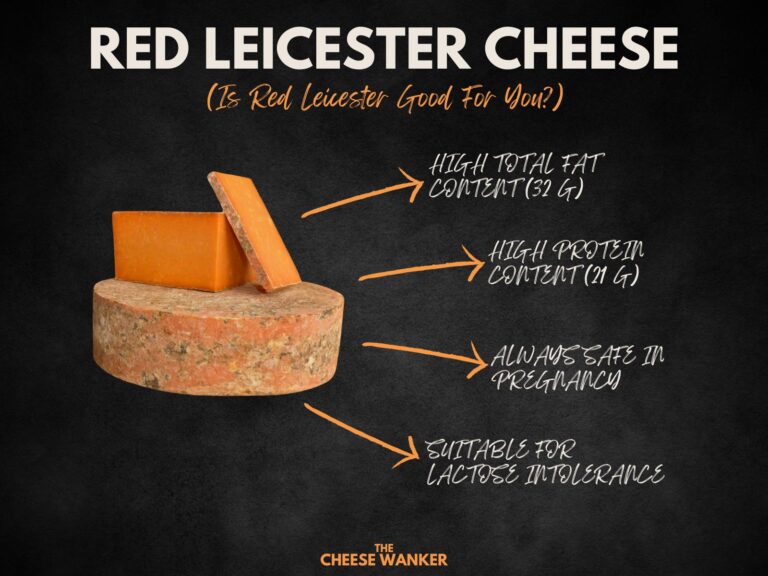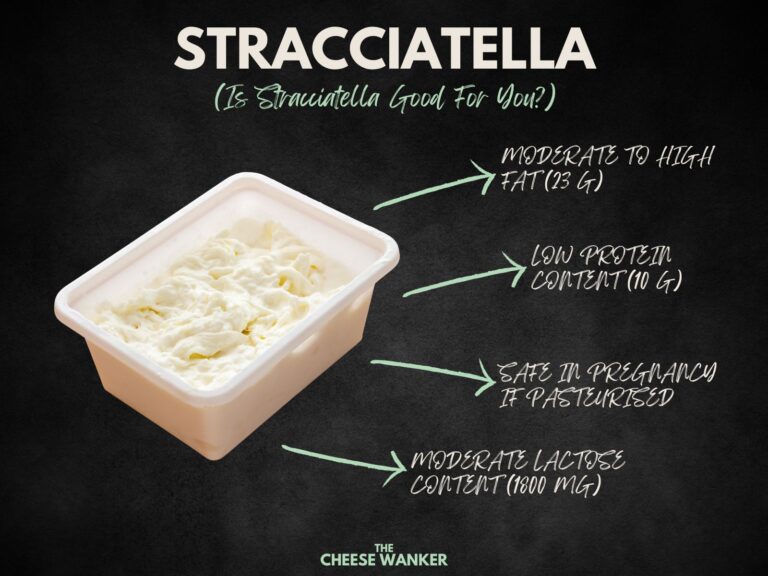In this post, we will delve into the scientific realm of nutrition to explore the intriguing characteristics of Kraft Singles. This widely consumed processed cheese product has garnered attention due to its convenience and versatility. Join us as we dissect the nutrition facts for Kraft Singles and find out whether they are a healthy choice.
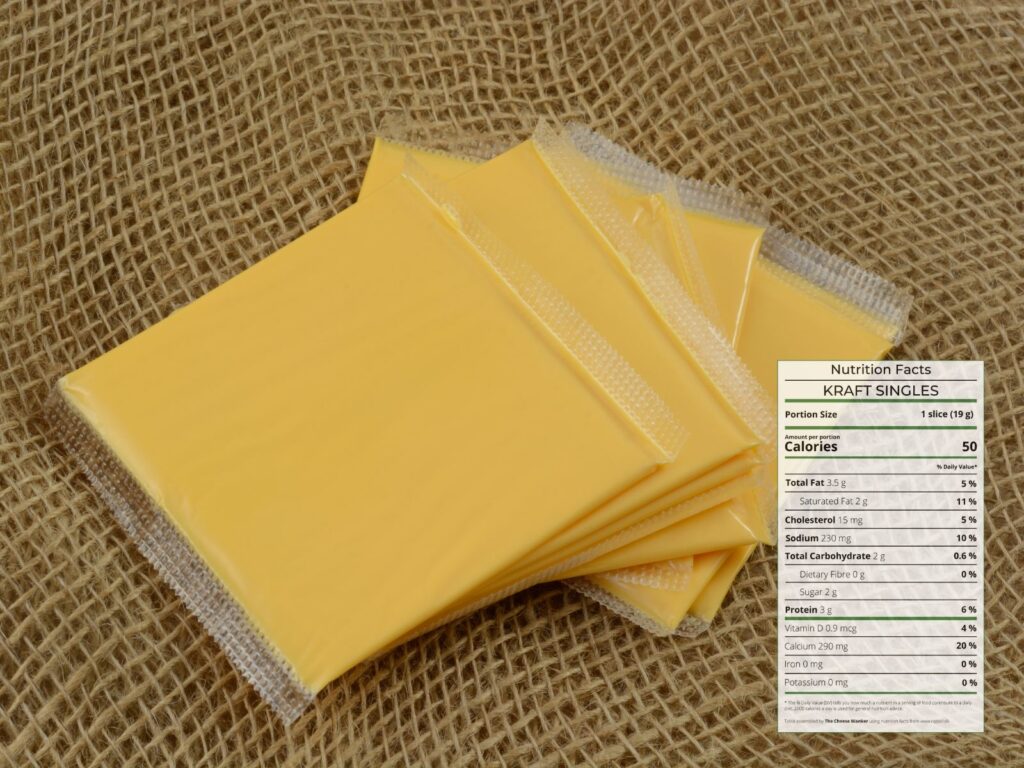
SEE ALSO: Nutrition facts for popular world cheeses in The Cheese Wanker’s index →
What are Kraft Singles?
Kraft Singles are a processed cheese product that have gained popularity for their ability to deliver a consistent taste and meltable texture. Manufactured using a precise blend of natural cheeses, emulsifying salts and other additives, Kraft Singles undergo a series of processing steps to achieve their characteristic form.
This product gets its name from the fact that it is commercially sold as single slices individually wrapped in a clear plastic.
You can find out how Kraft Singles score on our Cheese Definition Test by clicking here.
Nutrition fact sheet
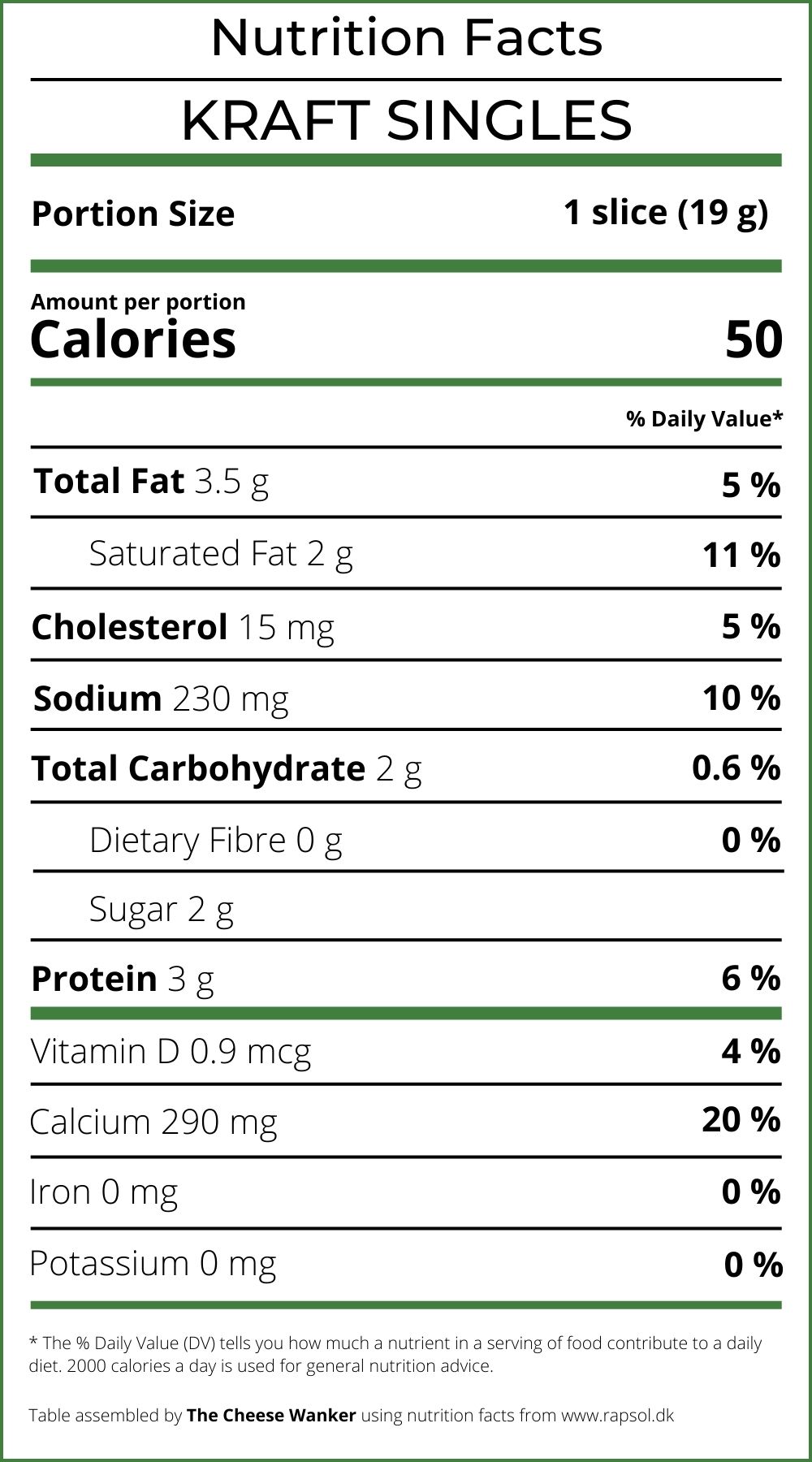
Nutritional review for Kraft Singles
Without a doubt, Kraft Singles are very popular around the world. In our assessment, we have crafted a nutritional profile using the original version of this cheese product.
Here are some of the key nutrition facts for the American Cheese version of Kraft Singles.
Lactose Intolerance
For individuals with lactose intolerance, the question of whether Kraft Singles are suitable arises. While traditional dairy products can be problematic due to their lactose content, most cheeses tend to have minimal lactose content.
However, due to their range of ingredients and production methods, Kraft Singles contain a higher lactose content than most pressed and aged cheeses. As such, lactose intolerant cheese lovers should be mindful of how much of this processed product they consume.
Fat Content
Kraft Singles possess a moderate fat content, which varies depending on the specific variety. Although it is higher than the fat content found in some natural cheeses, it remains within the acceptable range for a well-balanced diet when consumed in moderation. Indeed, each slice (19 g) of Kraft Singles contains around 3.5 g of fat.
It is worth noting that the type of fat present in Kraft Singles is predominantly saturated fat, which should be limited to maintain overall heart health. Moreover, because its carbohydrate content is higher than most cheeses, this product may not be suitable for people following a ketogenic diet.
You can learn more about the keto diet and which cheeses are most keto-friendly by clicking here.
Cholesterol Content
Moving forward, let us explore the cholesterol content inherent in Kraft Singles. Cholesterol is a vital component of our diet, but excessive consumption can have adverse health effects. Kraft Singles contain a modest amount of dietary cholesterol.
However, it is important to note that the primary concern lies in the consumption of high levels of saturated and trans fats, which can lead to elevated cholesterol levels in the blood. Therefore, moderation is key when including Kraft Singles in your diet.
Protein Content
Protein plays a crucial role in our body’s growth, repair and maintenance. While Kraft Singles contain protein, it is important to highlight that the quantity is relatively low compared to natural cheese. In fact, each slice of Kraft Singles only contains 3 g of protein.
Thus, if protein intake is a priority, it is advisable to consider other protein-rich sources alongside Kraft Singles to meet daily requirements.
Want to find out which cheeses have the highest protein content? Click here for our blog post covering cheeses with the highest protein content.
Safety in Pregnancy
Shifting our focus to the safety of consuming Kraft Singles during pregnancy, we delve into an important topic for expectant mothers.
During pregnancy, the nutritional choices we make significantly impact both the mother and the growing foetus. Kraft Singles are generally considered safe for consumption during pregnancy when consumed in moderation. The main reason for this is because they are made using pasteurised milk.
However, it is essential to remember that a balanced diet consisting of a variety of nutrient-rich foods is of paramount importance. Consultation with a healthcare professional can provide tailored guidance based on individual needs.
You can read more about which cheeses you can eat when you’re pregnant by clicking here.
Salt Content
Lastly, let us explore the salt content present in Kraft Singles. Kraft Singles contain a significant amount of salt, which contributes to their flavour and acts as a preservative. Effectively, one slice of this processed cheese product will give you 10% of the daily recommended sodium intake!
Obviously, it is crucial to be mindful of excessive sodium intake, as it can be detrimental to cardiovascular health. Monitoring overall sodium consumption and considering lower-sodium alternatives can aid in maintaining a well-balanced diet.
Conclusion
In summary, Kraft Singles offer a convenient and versatile cheese product that can be enjoyed as part of a balanced diet. For individuals with lactose intolerance, Kraft Singles may not be a suitable option due to their slightly elevated lactose content.
While they contain moderate amounts of fat and cholesterol, moderation is essential to maintaining a healthy lifestyle. Furthermore, protein content is relatively lower compared to natural cheese, necessitating the inclusion of other protein sources for a well-rounded diet.
By understanding the nutritional aspects of Kraft Singles, we can make informed choices and embrace a balanced approach to our dietary habits. Are you a Kraft Singles afficionado? We’d love to hear your thoughts on our assessment in the comments below.
References
Overall nutritional content
The nutritional content of cheese in our table comes from the USDA Food Data Central Repository, the Australian Food Composition Database and cheese manufacturers. We realise that there can be variations between different brands and producers. Hence, the numbers we have used are averages.
Fat content
Our fat RDI data comes from Cleveland Clinic’s Healthy Fat Intake resource.
Type of fat in cheese as per Harvard T.H. Chan’s The Nutrition Source.
Protein content
Our protein RDI data comes from Harvard Medical School’s Harvard Health Publishing.
Cholesterol content
Is There a Correlation between Dietary and Blood Cholesterol? Evidence from Epidemiological Data and Clinical Interventions? – Maria Luz Fernandez and Ana Gabriela Murillo
Saturated fat, carbohydrate, and cardiovascular disease – Patty W Siri-Tarino, Qi Sun, Frank B Hu and Ronald M Krauss
Effect of cheese consumption on blood lipids: a systematic review and meta-analysis of randomized controlled trials – Janette de Goede, Johanna M Geleijnse, Eric L Ding, Sabita S Soedamah-Muthu
Safety in pregnancy
All the advice relating to what cheeses you can eat during pregnancy in this article is based on the recommendations by health authorities in Australia, the UK and the USA. If you are unsure about what you can or cannot eat, please consult your doctor.
Australia – FSANZ, United Kingdom – NHS and United Sates of America – FDA
Lactose content
Lactose residual content in PDO cheeses
Detection of lactose in products with low lactose content
The analysis of lactose in milk and cheese products by HPLC
Food Standards ANZ Food Composition Database
Lactose & Galactose content of cheese
